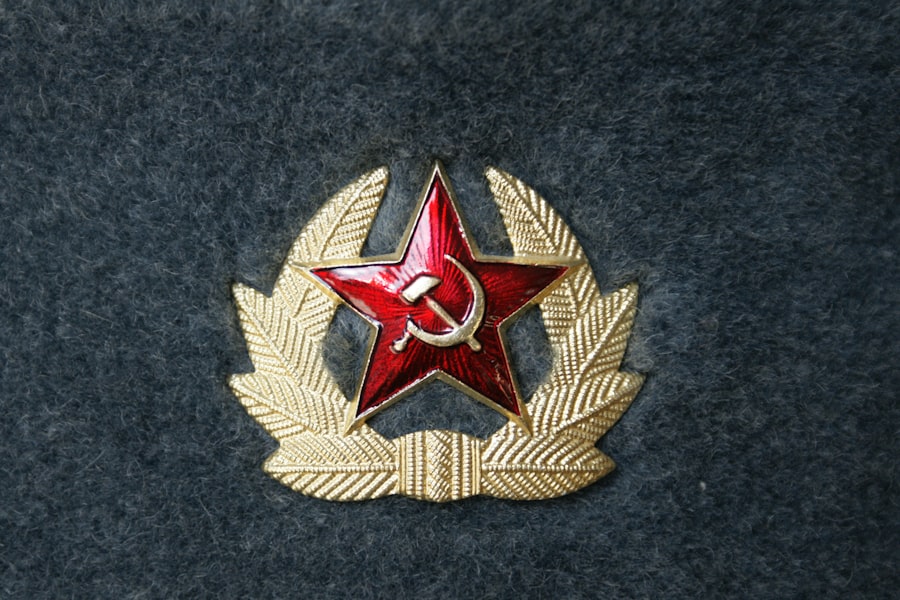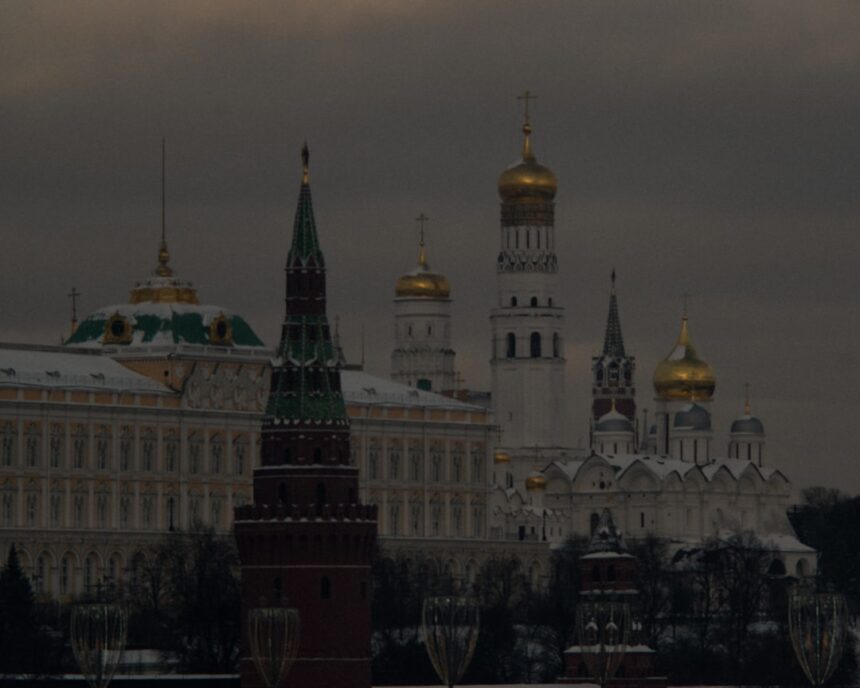Oleg Penkovsky, a name that resonates through the annals of Cold War history, was a Soviet military intelligence officer who became one of the most significant double agents of the era. His actions not only provided critical intelligence to the West but also played a pivotal role in shaping the geopolitical landscape of the time. Operating during a period marked by intense rivalry between the United States and the Soviet Union, Penkovsky’s espionage activities were instrumental in averting potential nuclear conflict and altering the course of history.
His story is one of courage, betrayal, and the complex interplay of loyalty and ideology. Penkovsky’s life encapsulates the essence of Cold War espionage, where allegiances were often murky, and the stakes were extraordinarily high. As tensions escalated between superpowers, his decision to spy for the West was driven by a profound belief in the dangers posed by Soviet policies.
This article delves into the multifaceted life of Oleg Penkovsky, exploring his early years, military career, and the far-reaching implications of his espionage activities. Through this examination, one can appreciate not only his contributions to intelligence but also the moral dilemmas faced by individuals caught in the crossfire of ideological warfare.
Key Takeaways
- Oleg Penkovsky was a key figure in Cold War espionage, working as a double agent for the United States and the United Kingdom against the Soviet Union.
- Penkovsky’s early life and military career in the Soviet Union provided him with the background and access to sensitive information that made him an effective spy.
- His role as a double agent provided crucial intelligence to the West, including information about Soviet missile capabilities and military strategies.
- Penkovsky’s espionage had a significant impact on the Cold War, influencing key events such as the Cuban Missile Crisis and the arms race between the US and the USSR.
- Despite his efforts to evade capture, Penkovsky was eventually caught by the KGB, leading to a highly publicized trial and his eventual execution.
Early Life and Military Career of Oleg Penkovsky
Born in 1919 in Moscow, Oleg Penkovsky grew up during a tumultuous period in Russian history. The aftermath of the Russian Revolution and the rise of Stalin’s regime shaped his formative years, instilling in him a complex relationship with authority and governance. He pursued an education in engineering, which later served him well in his military career.
His military career began in earnest during World War II, where he served as a lieutenant colonel. Penkovsky’s experiences during the war exposed him to the harsh realities of conflict and the strategic importance of intelligence.
As he navigated through various military roles, he developed a keen understanding of Soviet military operations and their implications on global security. This knowledge would later become invaluable as he transitioned into espionage, ultimately leading him to become a key figure in Cold War intelligence.
Penkovsky’s Role as a Double Agent

Penkovsky’s transformation from a loyal Soviet officer to a double agent was not an overnight decision; it was a gradual evolution influenced by his disillusionment with the Soviet regime. By the late 1950s, he had become increasingly aware of the oppressive nature of Soviet policies and their potential consequences on global peace. Motivated by a desire to prevent nuclear catastrophe and promote democratic ideals, he made contact with Western intelligence agencies, particularly the CIA and British MI6.
His role as a double agent was characterized by remarkable bravery and resourcefulness. Penkovsky provided invaluable information about Soviet missile capabilities, troop movements, and strategic plans. His intelligence reports were often detailed and timely, allowing Western powers to gain critical insights into Soviet operations.
The information he supplied during pivotal moments, such as the Cuban Missile Crisis, underscored his significance as an asset for Western intelligence. Penkovsky’s dual allegiance placed him at great personal risk, yet he remained steadfast in his commitment to his cause.
The Impact of Penkovsky’s Espionage on the Cold War
| Aspect | Impact |
|---|---|
| Information Obtained | Penkovsky provided valuable intelligence on Soviet missile capabilities and military strategies. |
| Strategic Decisions | The intelligence influenced US and NATO strategic decisions during the Cold War. |
| Nuclear Arms Race | Penkovsky’s espionage contributed to the escalation of the nuclear arms race between the US and the Soviet Union. |
| Détente | The information may have influenced the policy of détente, as both sides sought to reduce tensions. |
| Legacy | Penkovsky’s actions had a lasting impact on Cold War history and espionage tactics. |
The ramifications of Penkovsky’s espionage activities were profound and far-reaching. His intelligence significantly altered Western perceptions of Soviet military capabilities, leading to a reassessment of defense strategies. The information he provided during the Cuban Missile Crisis was particularly crucial; it enabled U.S.
leaders to understand the extent of Soviet missile deployments in Cuba and facilitated informed decision-making during a time of heightened tension. Moreover, Penkovsky’s contributions helped to foster a sense of urgency within Western intelligence circles regarding Soviet intentions. His revelations about missile technology and military readiness prompted increased investment in defense systems and intelligence operations.
The insights gained from his espionage not only shaped military strategies but also influenced diplomatic negotiations between superpowers. In many ways, Penkovsky’s actions exemplified how individual agents could impact global events during an era defined by secrecy and suspicion.
The Capture and Trial of Oleg Penkovsky
Despite his success as a double agent, Penkovsky’s luck eventually ran out. In 1962, he was arrested by Soviet authorities after being betrayed by a fellow operative. His capture marked a significant turning point in Cold War espionage, as it underscored the risks faced by those who operated in the shadows.
Following his arrest, Penkovsky endured intense interrogation and was subjected to psychological pressure designed to extract information about Western intelligence operations. The trial that followed was emblematic of the Soviet regime’s approach to dissent and betrayal. Penkovsky was charged with treason and espionage, facing a grim fate as he stood before a court that had already predetermined his guilt.
The proceedings were shrouded in secrecy, reflecting the broader climate of fear that characterized Soviet society at the time. Ultimately, he was sentenced to death and executed in 1963, silencing one of the most significant voices in Cold War espionage.
Penkovsky’s Legacy in Intelligence and Espionage

Oleg Penkovsky’s legacy extends far beyond his tragic end; it serves as a testament to the complexities of loyalty and ideology during one of history’s most fraught periods. His contributions to Western intelligence have been widely recognized as pivotal in shaping Cold War dynamics. Analysts often cite his work as instrumental in averting nuclear conflict during critical moments, particularly during the Cuban Missile Crisis when tensions reached their zenith.
In addition to his immediate impact on intelligence operations, Penkovsky’s story has inspired countless narratives about espionage and sacrifice. His life has been depicted in various forms of media, including books and films that explore themes of loyalty, betrayal, and moral ambiguity. As historians continue to analyze his contributions, they recognize that Penkovsky’s actions not only influenced military strategies but also highlighted the human cost associated with espionage.
The Controversy Surrounding Penkovsky’s Motives and Allegiances
While Oleg Penkovsky is often celebrated as a hero among Western intelligence circles, his motives have sparked considerable debate among historians and scholars. Some argue that his actions were driven primarily by ideological convictions against totalitarianism, while others suggest that personal ambition played a significant role in his decision to become a double agent. This ambiguity raises questions about the nature of loyalty and betrayal within the context of espionage.
Furthermore, there are those who contend that Penkovsky’s motivations were not purely altruistic; they argue that he may have sought personal gain or recognition through his actions. This complexity adds layers to his character and challenges simplistic narratives about good versus evil during the Cold War. As historians sift through declassified documents and personal accounts, they continue to grapple with understanding what truly motivated Penkovsky to risk everything for his beliefs.
The Unveiling of Penkovsky’s Story in Declassified Documents
In recent years, declassified documents have shed new light on Oleg Penkovsky’s life and espionage activities. These revelations have provided historians with valuable insights into his operations as a double agent and have clarified some aspects of his motivations. The documents reveal not only the extent of his contributions but also the intricate web of relationships he maintained with Western intelligence agencies.
The unveiling of these documents has sparked renewed interest in Penkovsky’s story, prompting scholars to reassess his legacy within the broader context of Cold War espionage. As new information comes to light, it becomes increasingly clear that Penkovsky was not merely an isolated figure but rather part of a larger network of individuals navigating the treacherous waters of international intrigue. This ongoing exploration underscores how historical narratives can evolve over time as new evidence emerges.
The Influence of Penkovsky’s Information on Key Cold War Events
Penkovsky’s intelligence had a direct impact on several key events during the Cold War, shaping both military strategies and diplomatic negotiations between superpowers.
For instance, during the Cuban Missile Crisis, his reports provided critical information that enabled U.S.
officials to assess the threat posed by Soviet missiles stationed in Cuba. Moreover, Penkovsky’s contributions extended beyond immediate military concerns; they also influenced broader geopolitical dynamics. By exposing vulnerabilities within Soviet military operations, he helped foster an environment where Western powers could engage more confidently in diplomatic negotiations with their adversaries.
His intelligence not only informed military strategies but also contributed to shaping public perceptions about Soviet capabilities during an era defined by fear and uncertainty.
Penkovsky’s Impact on Modern Espionage and Intelligence Operations
The legacy of Oleg Penkovsky continues to resonate within modern intelligence operations and espionage practices. His story serves as a cautionary tale about the complexities inherent in navigating loyalty and betrayal within high-stakes environments. Contemporary intelligence agencies often draw lessons from his experiences when assessing potential risks associated with recruiting informants or managing double agents.
Furthermore, Penkovsky’s case highlights the importance of human intelligence (HUMINT) in an age increasingly dominated by technological surveillance methods. While advancements in technology have transformed intelligence-gathering techniques, the need for human insight remains paramount. Analysts recognize that individuals like Penkovsky can provide nuanced perspectives that machines cannot replicate—underscoring how personal motivations can drive critical intelligence outcomes.
Oleg Penkovsky’s Enduring Legacy in Cold War History
Oleg Penkovsky’s life is a compelling narrative woven into the fabric of Cold War history—a tale marked by bravery, sacrifice, and moral complexity. His contributions as a double agent not only provided invaluable intelligence to Western powers but also underscored the profound dilemmas faced by individuals operating within oppressive regimes. As historians continue to explore his legacy through declassified documents and scholarly analysis, it becomes increasingly clear that Penkovsky’s impact transcends mere espionage; it serves as a reminder of the human cost associated with ideological conflict.
In reflecting on Oleg Penkovsky’s enduring legacy, one cannot overlook how his story continues to shape contemporary discussions about loyalty, betrayal, and moral responsibility within intelligence operations. As nations navigate an ever-evolving geopolitical landscape fraught with uncertainty, Penkovsky’s experiences remain relevant—serving as both inspiration and cautionary tale for those who dare to challenge authority in pursuit of truth and justice amidst chaos.
Oleg Penkovsky, a pivotal figure during the Cold War, played a crucial role in providing the West with vital intelligence about Soviet capabilities, significantly impacting the Cuban Missile Crisis. His story is a fascinating tale of espionage and intrigue, shedding light on the high-stakes world of intelligence during one of the most tense periods in modern history. For those interested in exploring more about the intricate world of espionage and the strategic decisions made in the shadows, an article on In The War Room offers further insights into similar stories and the broader context of Cold War intelligence operations.
WATCH THIS 🤯How the KGB Stole America’s Future
FAQs
Who was Oleg Penkovsky?
Oleg Penkovsky was a Soviet military intelligence officer and a spy for the United Kingdom and the United States during the Cold War.
What did Oleg Penkovsky do?
Penkovsky provided valuable intelligence to the West, including information about Soviet missile capabilities and military strategies.
How was Oleg Penkovsky caught?
Penkovsky was betrayed by a Soviet double agent and arrested by the KGB in 1962.
What happened to Oleg Penkovsky after his arrest?
Penkovsky was tried for treason and espionage, and was executed by the Soviet Union in 1963.
What impact did Oleg Penkovsky’s actions have on the Cold War?
Penkovsky’s intelligence played a significant role in the Cuban Missile Crisis and provided crucial information to the West about Soviet military capabilities, which helped to ease tensions during the Cold War.




